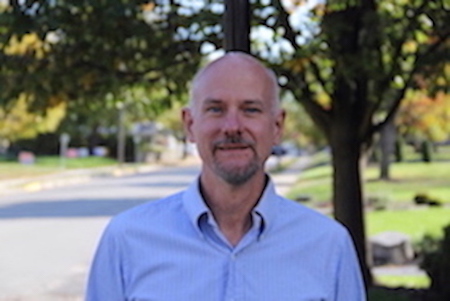
- “We really want to believe that rapists are deviant people in our normal culture. But what if, when we look closely, we discover that most rapists are actually normal people in our deviant culture.”
As sexual assault awareness month comes to a close, this quote from Keith Edwards' “Ending Rape” TED talk keeps going through my mind. I want to believe that rapists are monsters and “bad people,” probably because this takes some of the blame and burden off of me and my “normal” culture consisting of “good people.”
But, if some good people are rapists, and most rapists are good people, then I'm forced to wrestle with the likelihood that normalcy, in fact, supports and encourages rape culture.
Case in point: I recently discovered a podcast produced by students at DePauw titled “House of Scaife,” where “scaife” is a euphemism for sex. I suspect the podcast hosts would define scaife as consensual sex, but since at no time is consent ever mentioned in their podcast, I interpret it to really mean rape.
Episodes include “Scaifing at Themed Parties,” “The Science of Scaife,” and “Scaife and Performance Enhancing Drugs.” During each episode the hosts discuss their exploits, how to scaife more effectively, etc. For example, here's one of the milder exchanges from “Scaife at Big Events:”
Host 1: Tell us what you were doing [while you were taking a hiatus from the show]. What new role did you fill in? No pun intended.
Host 2: I really soul searched a little bit and I took on a new role within my life and within the [name redacted] fraternity. I decided to be more of a recruitment, you know, recruit fellow scaife hounds. It was a fulfilling experience for me because, you know, I had my time and I truly love to scaife, but now it's time to give back to the community, so for the past six months I've been really just recruiting young scaife hounds.
This podcast is the standard bearer of rape culture, exhibiting major characteristics of this deplorable approach to sex: objectification of women, absence of mutual respect for sexual partners, egocentrism and selfishness, predatory pack mentality (e.g., referring to group members as “hounds”), and no mention or concern regarding consent.
And from informal conversations with students, this podcast is quite popular and considered “normal,” which begs the question posed by Keith Edwards: Are the hosts of this podcast deviants in our normal culture, or are they normal in our deviant culture?
Several students I know who are survivors of sexual assault tell me that they know the hosts; they also tell me that the hosts are “decent guys,” suggesting they are normal in our deviant culture.
This conclusion initially bothered me, but as I thought about it, I became hopeful. If these men are not deviants, then it's possible to have meaningful dialogue with them and help them realize how their attitudes towards sex are harmful and hurtful, and their actions are potentially illegal.
I hope they can listen to survivor stories and understand the destruction and pain left in their wake of sexual conquest. I hope they can truly understand and practice enthusiastic and revocable consent and passionately promote consent to men who respect them. I hope they can transform their podcast to become one where healthy and consensual sexual practices are openly and actively discussed and promoted.
Sexual assault on campus and rape culture in general are horrific problems affecting hundreds of women and men on DePauw's campus. As a middle aged male professor, I know I have little power to change DePauw's culture. However, I believe the hosts of this podcast (and men who share their attitudes toward sex) have the potential to dramatically influence and change our culture to be one where healthy consensual sexual relationships that are mutually beneficial and fulfilling are promoted; a culture in which rape is not normalized but rather seen as deviant, abhorrent, and illegal; a culture where everyone is safe.
I challenge these men to share this vision of a safer and healthier campus and then work toward effecting change, and I hope and pray they are then up to this challenge.
